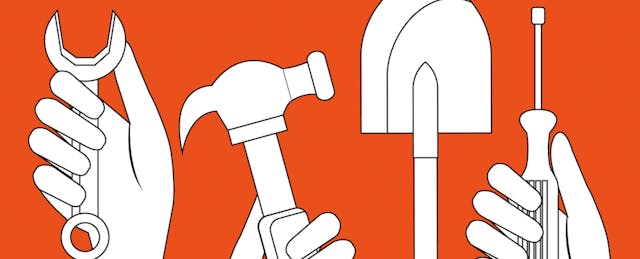In the fall of 2014, the Sonoma County Office of Education and Sonoma State University did what no other organization had yet done—launched a Maker Certificate Program, the first program of its kind.
We saw a need in our northern California area to help educators—including K-12 classroom teachers and administrators and librarians—to foster a learning community based on making and maker education. From our vantage point, a certificate program comprised of mini-courses and continuing education units offered the institutional means to support and recognize educators’ interests and passions in maker education.
What We Built
Building the program was a group effort. We invited local educators—who were already infusing hands-on making, media production, or engineering into their K-12 classrooms—to design the curricula for the mini courses. Since October 2014, the Maker Certificate Program has implemented six courses, hired 14 local maker educators as instructors, enrolled more than 180 educators in at least one course, and certified more than 60 educators; we were also invited to the launch of The White House’s National Week of Making in June 2015.
Together, we created mini courses that embody many of the core values and learning and design principles of making, maker-based communities, and progressive education, including:
- Fostering a participatory and peer-supported environment
- Focusing on hands-on making, tinkering, and designing activities and projects, and placing value on both the process and potential products
- Providing low barriers of entry and opportunities to differentiate—what the MIT Media Lab’s Seymour Papert and Mitch Resnick refer to as “high ceilings” to increase and extend the complexity of projects and “wide walls” to not limit the kinds or number of projects
- Emphasizing ongoing documentation, reflection, and giving and receiving feedback
How It Works
The various mini courses were designed as participatory and peer-based in which “everyone’s a maker” and “everyone’s a learner,” even the facilitators of the courses.
- The two key assessments in the program are to create and publish a maker portfolio and design a maker action plan for implementation. These assessments place value on both the processes and (potential) products of making, and encourage educators to document and share their processes, give and receive feedback, and reflect on their overall experience.
- Each session of the Making for Educators mini course, for example, is held at a different elementary, middle, or high school makerspace in the area rather than on the university campus. This allows educators to experience the uniqueness of each space—its design, tools, and materials, and overall ethos of making; it also underscores the importance of educators and students co-developing a rationale for why making matters at their site.
- In the Introduction to Making online mini course, educators are mailed a maker kit that includes paper circuitry materials and prompts from 21st Century Notebooking from NexMap. This invites each educator to immediately build with their materials, reflect on the process, and share their work during the first week of the course.
- Throughout the Maker Certificate program, educators engage in both thinking routines from Agency by Design and with diverse materials and tools, from cardboard, tape, and glue guns to laser and vinyl cutters. Making is not simply about using specific high-tech tools or rapidly prototyping; it is fundamentally a process that supports learners by thinking deeply.
Why It Matters
At its core, making is about people engaging in activities that they love and sharing their love of learning with their community. For educators, tapping into their love of making and learning and combining it with ongoing documentation, reflection, and feedback can spark both personal and professional change on many levels: pedagogical, curricular, organizational, and material.
Making invites a cultural and curricular shift within schooling. And as researchers Erica Rosenfeld Halverson, from the University of Wisconsin-Madison, and Kimberly M. Sheridan, from the George Mason University suggest, “bringing the Maker movement into the education conversation has the potential to transform how we understand ‘what counts’ as learning, as a learner, and as a learning environment.” Additionally, discussions around learning, making, and tinkering offer important opportunities to address issues of equity, access, and cultural assumptions.
In terms of impact on practice, I have worked with teachers in Northern California on understanding and implementing digital media technologies for almost a decade, and I have never seen educators change their outlook and their practice so quickly as I have when they are engaged in meaningful making. Here are some quotes teachers enrolled in our program have shared about their sense of renewal and purpose:
- “Being a maker has made me a more calm, confident educator; it has changed my life.” —Patricia Amend-Ehn, Kenwood Elementary
- “It has reinvigorated not only my professional life, but also my personal life and goals related to my own personal growth as a maker.” —Carinne Paddock, Oak Grove Elementary
- “I was on the verge of quitting teaching. As a maker educator I am inspired to keep teaching students inspiring curriculum.” —Nate MacDonald, White Hill Middle School
Resources for Maker Ed Professional Development
Interested in enrolling in maker-centered PD? Want to DIY (do-it-yourself) your own PD? Better yet, grab a few colleagues and DIT (do-it-together) this summer—and beyond. Check out this list of professional development resources for maker educators. And share your own ideas in the Comments section below.


